61 low relevance results shown for 'Force'. Prev |1|2|3 | Next | View 100 per page
Showing low relevance matches only. Return to normal search results
Forces and Moving - The way objects move depends on a variety of factors including their size and shape ACSSU033 Year 2 Physical Sciences
Forces and Moving - A push or a pull affects how an object moves or changes shape ACSSU076 Year 4 Physical Sciences
Forces and Moving - Forces can be exerted by one object on another through direct contact or from a distance ACSSU117 Year 7 Physical Sciences
Forces and Machines - Change to an object’s motion is caused by unbalanced forces, including Earth’s gravitational attraction, acting on the object ACSSU229 Year 10 Physical Sciences
Forces and Motion - The motion of objects can be described and predicted using the laws of physics ACSCH018 Year 11 Chemical fundamentals
Properties and structure of atoms - Atoms can be modelled as a nucleus surrounded by electrons in distinct energy levels, held together by electrostatic forces of attraction between the nucleus and electrons; atoms can be represented using electron shell diagrams (all electron shells or val ACSCH032 Year 11 Chemical fundamentals
Properties and structure of materials - The characteristic properties of metals (for example, malleability, thermal conductivity, electrical conductivity) are explained by modelling metallic bonding as a regular arrangement of positive ions (cations) made stable by electrostatic forces of attra ACSCH056 Year 11 Molecular interactions and reactions
Intermolecular forces and gases - The shapes of molecules can be explained and predicted using three dimensional representations of electrons as charge clouds and using valence shell electron pair repulsion (VSEPR) theory ACSCH059 Year 11 Molecular interactions and reactions
Intermolecular forces and gases - Data from chromatography techniques (for example, thin layer, gas and highperformance liquid chromatography) can be used to determine the composition and purity of substances; the separation of the components is caused by the variation of strength of the ACSCH060 Year 11 Molecular interactions and reactions
Intermolecular forces and gases - The behaviour of gases, including the qualitative relationships between pressure, temperature and volume, can be explained using kinetic theory ACSCH065 Year 11 Molecular interactions and reactions
Aqueous solutions and acidity - The solubility of substances in water, including ionic and molecular substances, can be explained by the intermolecular forces between species in the substances and water molecules, and is affected by changes in temperature ACSPH060 Year 11 Linear Motion and Waves
Linear motion and force - Uniformly accelerated motion is described in terms of relationships between measurable scalar and vector quantities, including displacement, speed, velocity and acceleration ACSPH061 Year 11 Linear Motion and Waves
Linear motion and force - Representations, including graphs and vectors, and/or equations of motion, can be used qualitatively and quantitatively to describe and predict linear motion ACSPH062 Year 11 Linear Motion and Waves
Linear motion and force - Vertical motion is analysed by assuming the acceleration due to gravity is constant near Earth’s surface ACSPH063 Year 11 Linear Motion and Waves
Linear motion and force - Newton’s Three Laws of Motion describe the relationship between the force or forces acting on an object, modelled as a point mass, and the motion of the object due to the application of the force or forces ACSPH064 Year 11 Linear Motion and Waves
Linear motion and force - Momentum is a property of moving objects; it is conserved in a closed system and may be transferred from one object to another when a force acts over a time interval ACSPH065 Year 11 Linear Motion and Waves
Linear motion and force - Energy is conserved in isolated systems and is transferred from one object to another when a force is applied over a distance; this causes work to be done and changes to kinetic and/or potential energy of objects ACSPH066 Year 11 Linear Motion and Waves
Linear motion and force - Collisions may be elastic and inelastic; kinetic energy is conserved in elastic collisions ACSPH102 Year 12 Gravity and electromagnetism
Electromagnetism - Electrostatically charged objects exert a force upon one another; the magnitude of this force can be calculated using Coulomb’s Law ACSPH108 Year 12 Gravity and electromagnetism
Electromagnetism - Magnets, magnetic materials, moving charges and currentcarrying wires experience a force in a magnetic field; this force is utilised in DC electric motors ACSPH100 Year 12 Gravity and electromagnetism
Gravity and motion - When an object experiences a net force of constant magnitude perpendicular to its velocity, it will undergo uniform circular motion, including circular motion on a horizontal plane and around a banked track ACSCH031 Year 11 Chemical fundamentals
Properties and structure of materials - The properties of ionic compounds (for example, high melting point, brittleness, ability to conduct electricity when liquid or in solution) are explained by modelling ionic bonding as ions arranged in a crystalline lattice structure with forces of attract ACSPH098 Year 12 Gravity and electromagnetism
Gravity and motion - The vector nature of the gravitational force can be used to analyse motion on inclined planes by considering the components of the gravitational force (that is, weight) parallel and perpendicular to the plane ACSPH103 Year 12 Gravity and electromagnetism
Electromagnetism - A positively charged body placed in an electric field will experience a force in the direction of the field; the strength of the electric field is defined as the force per unit charge ACSPH104 Year 12 Gravity and electromagnetism
Electromagnetism - Point charges and charged objects produce an electric field in the space that surrounds them; field theory attributes the electrostatic force on a point charge or charged body to the presence of an electric field ACSPH105 Year 12 Gravity and electromagnetism
Electromagnetism - When a charged body moves or is moved from one point to another in an electric field and its potential energy changes, work is done on or by the field
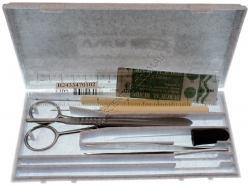


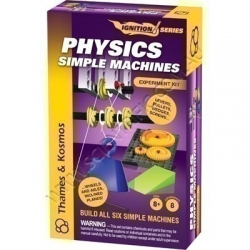

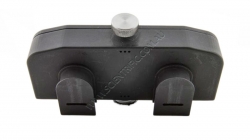
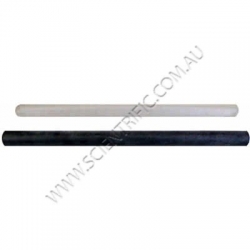

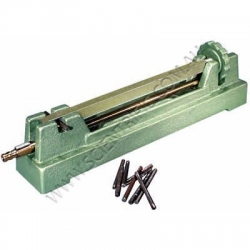

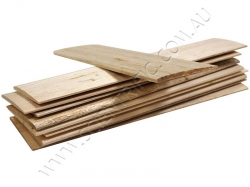
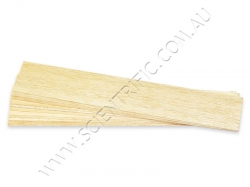
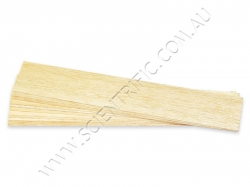
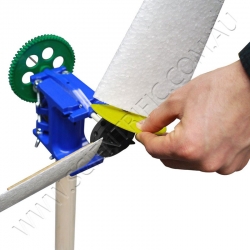
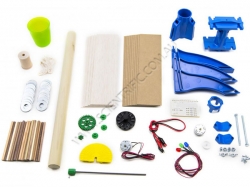
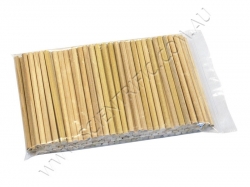
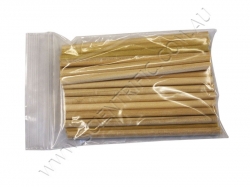
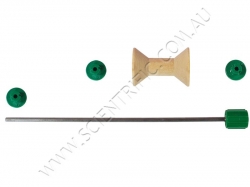
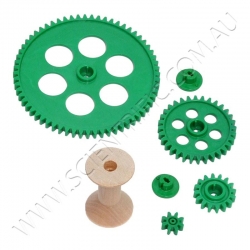
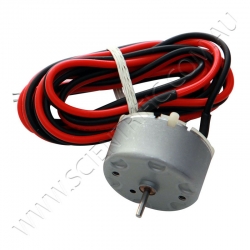
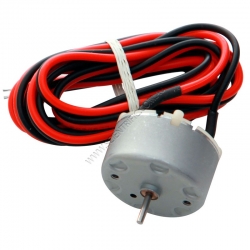
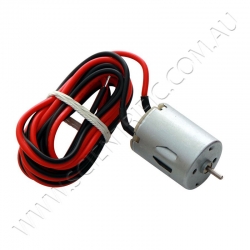
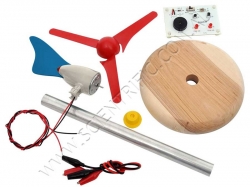
61 low relevance results shown for 'Force'. Prev |1|2|3 | Next | View 100 per page
Showing low relevance matches only. Return to normal search results
Curriculum resources related to 'Force'
ACSSU005 Foundation Physical SciencesForces and Moving - The way objects move depends on a variety of factors including their size and shape ACSSU033 Year 2 Physical Sciences
Forces and Moving - A push or a pull affects how an object moves or changes shape ACSSU076 Year 4 Physical Sciences
Forces and Moving - Forces can be exerted by one object on another through direct contact or from a distance ACSSU117 Year 7 Physical Sciences
Forces and Machines - Change to an object’s motion is caused by unbalanced forces, including Earth’s gravitational attraction, acting on the object ACSSU229 Year 10 Physical Sciences
Forces and Motion - The motion of objects can be described and predicted using the laws of physics ACSCH018 Year 11 Chemical fundamentals
Properties and structure of atoms - Atoms can be modelled as a nucleus surrounded by electrons in distinct energy levels, held together by electrostatic forces of attraction between the nucleus and electrons; atoms can be represented using electron shell diagrams (all electron shells or val ACSCH032 Year 11 Chemical fundamentals
Properties and structure of materials - The characteristic properties of metals (for example, malleability, thermal conductivity, electrical conductivity) are explained by modelling metallic bonding as a regular arrangement of positive ions (cations) made stable by electrostatic forces of attra ACSCH056 Year 11 Molecular interactions and reactions
Intermolecular forces and gases - The shapes of molecules can be explained and predicted using three dimensional representations of electrons as charge clouds and using valence shell electron pair repulsion (VSEPR) theory ACSCH059 Year 11 Molecular interactions and reactions
Intermolecular forces and gases - Data from chromatography techniques (for example, thin layer, gas and highperformance liquid chromatography) can be used to determine the composition and purity of substances; the separation of the components is caused by the variation of strength of the ACSCH060 Year 11 Molecular interactions and reactions
Intermolecular forces and gases - The behaviour of gases, including the qualitative relationships between pressure, temperature and volume, can be explained using kinetic theory ACSCH065 Year 11 Molecular interactions and reactions
Aqueous solutions and acidity - The solubility of substances in water, including ionic and molecular substances, can be explained by the intermolecular forces between species in the substances and water molecules, and is affected by changes in temperature ACSPH060 Year 11 Linear Motion and Waves
Linear motion and force - Uniformly accelerated motion is described in terms of relationships between measurable scalar and vector quantities, including displacement, speed, velocity and acceleration ACSPH061 Year 11 Linear Motion and Waves
Linear motion and force - Representations, including graphs and vectors, and/or equations of motion, can be used qualitatively and quantitatively to describe and predict linear motion ACSPH062 Year 11 Linear Motion and Waves
Linear motion and force - Vertical motion is analysed by assuming the acceleration due to gravity is constant near Earth’s surface ACSPH063 Year 11 Linear Motion and Waves
Linear motion and force - Newton’s Three Laws of Motion describe the relationship between the force or forces acting on an object, modelled as a point mass, and the motion of the object due to the application of the force or forces ACSPH064 Year 11 Linear Motion and Waves
Linear motion and force - Momentum is a property of moving objects; it is conserved in a closed system and may be transferred from one object to another when a force acts over a time interval ACSPH065 Year 11 Linear Motion and Waves
Linear motion and force - Energy is conserved in isolated systems and is transferred from one object to another when a force is applied over a distance; this causes work to be done and changes to kinetic and/or potential energy of objects ACSPH066 Year 11 Linear Motion and Waves
Linear motion and force - Collisions may be elastic and inelastic; kinetic energy is conserved in elastic collisions ACSPH102 Year 12 Gravity and electromagnetism
Electromagnetism - Electrostatically charged objects exert a force upon one another; the magnitude of this force can be calculated using Coulomb’s Law ACSPH108 Year 12 Gravity and electromagnetism
Electromagnetism - Magnets, magnetic materials, moving charges and currentcarrying wires experience a force in a magnetic field; this force is utilised in DC electric motors ACSPH100 Year 12 Gravity and electromagnetism
Gravity and motion - When an object experiences a net force of constant magnitude perpendicular to its velocity, it will undergo uniform circular motion, including circular motion on a horizontal plane and around a banked track ACSCH031 Year 11 Chemical fundamentals
Properties and structure of materials - The properties of ionic compounds (for example, high melting point, brittleness, ability to conduct electricity when liquid or in solution) are explained by modelling ionic bonding as ions arranged in a crystalline lattice structure with forces of attract ACSPH098 Year 12 Gravity and electromagnetism
Gravity and motion - The vector nature of the gravitational force can be used to analyse motion on inclined planes by considering the components of the gravitational force (that is, weight) parallel and perpendicular to the plane ACSPH103 Year 12 Gravity and electromagnetism
Electromagnetism - A positively charged body placed in an electric field will experience a force in the direction of the field; the strength of the electric field is defined as the force per unit charge ACSPH104 Year 12 Gravity and electromagnetism
Electromagnetism - Point charges and charged objects produce an electric field in the space that surrounds them; field theory attributes the electrostatic force on a point charge or charged body to the presence of an electric field ACSPH105 Year 12 Gravity and electromagnetism
Electromagnetism - When a charged body moves or is moved from one point to another in an electric field and its potential energy changes, work is done on or by the field
Products related to 'Force'
Sciencéthic Microphones
SCIENCÉTHIC MICROPHONES
Two piezoelectric sensors protected by a metallic body are linked to a 3.5mm stereo jack plug. The microphones can be connected to the audio output of the computer sound card.
For use with Sciencéthic Seismic Forces and Fault Model (Order Code 0...
Order code: 032 011

Basic Student Dissecting Set
BASIC STUDENT DISSECTING SET
All the necessary instruments for most high school dissection applications.
Includes:
1 x no.4 scalpel handle
1 x no.22 blade
1 x pair of scissors (stainless steel, 115mm)
1 x forceps (broad point, 115mm)
2 x straight teasin...
Order code: 140770

Plate Tectonics Video Lab
Last one available
PLATE TECTONICS VIDEOLAB
Discover the causes and effects of movement of the Earth’s plates
Introduce your students to the forces behind earthquakes and volcanoes with Plate Tectonics: The Puzzles of the Continents DVD, then utilize the 12 activities to enhance their unde...
Order code: 362207

Rocket Science
ROCKET SCIENCE
Last century, the effort to put humans on the moon inspired a whole generation of scientists and engineers. More recently, we have been captivated by new discoveries made by robots on Mars. Our internet, GPS maps and telecommunications networks all depend o...
Order code: 665104

Physics Simple Machines Experiment Kit
Build Six Simple Machines
Establish a foundation in physics by building models of six simple machines: levers, pulleys, inclined planes, screws, wedges, wheels and axles.
Assemble and use a spring scale to measure how the machines change the direction and magnitude of fo...
Order code: 700001

Sciencéthic 3D Compass - Set of 10
SCIENCÉTHIC 3D COMPASS SET
This set of 10 3D compasses can be hand-held or mounted on a flat surface to show a magnetic field in three directions.
Sold as a box of 10.
Note: The pictured magnet is not included.
KEY AUSTRALIAN EXPERIMENTS
Physics:
• ...
Order code: 999 010

Vernier Friction Pad DTS
VERNIER DTS FRICTION PAD
The Vernier DTS Friction Pad adds some friction back to Vernier's DTS plastic dynamics carts, so your students can study friction in a controlled way. Setting the friction amount is as simple as turning a knob.
Add a Vernier DTS Friction Pad a...
Order code: DTS-PAD

IEC Electrostatic Rod Glass 300x10mm
IEC ELECTROSTATIC GLASS ROD
A quality solid glass rod 300mm x 10mm for investigating electrostatic forces created by rubbing rods with cloths.
IEC electrostatic rods are made from various insulation materials that can be used for generating static charges and demonstra...
Order code: EM3512-001

IEC Electrostatic Rod Ebonite 300x10mm
IEC ELECTROSTATIC EBONITE ROD
A quality solid ebonite rod 300mm x 10mm for investigating electrostatic forces created by rubbing rods with cloths.
IEC electrostatic rods are made from various insulation materials that can be used for generating static charges and demon...
Order code: EM3532-001
IEC Electrostatic Rod Brass Acrylic 300x10mm
IEC ELECTROSTATIC ALUMINIUM/ACRYLIC ROD
Investigate electrostatic forces created by rubbing rods with cloths using this special double ended 300mm x 10mm electrostatic rod manufactured by joining 150mm x 10mm rods of aluminium and acrylic.
Order code: EM3550-001

IEC Bar Breaker Cast Iron LP Gas
IEC CAST IRON BAR BREAKER FOR LP GAS
The classic cast iron Bar Breaker is a device that demonstrates the unstoppable forces of expansion and contraction. A steel bar lies in a cast iron frame and a cast iron pin locks the bar in place. A gas burner is fitted into the cast...
Order code: HL0231-001

IEC Bar Breaker Cast Iron Natural
IEC CAST IRON BAR BREAKER FOR NATURAL GAS
The classic cast iron Bar Breaker is a device that demonstrates the unstoppable forces of expansion and contraction. A steel bar lies in a cast iron frame and a cast iron pin locks the bar in place. A gas burner is fitted into the...
Order code: HL0232-001

KidWind Airfoil Balsa Blade Sheets - 10 pack
KIDWIND AIRFOIL BALSA BLADE SHEETS 10 PACK
This balsa is pre-shaped in an airfoil shape. Real wind turbine blades use this airfoil shape to generate lift and reduce drag, making for highly efficient rotors.
Experiment with advanced blade designs and explore Bernoulli’s P...
Order code: KW-ABBS10


KidWind Balsa Blade Sheets 100 Pack
KIDWIND BALSA BLADE SHEETS 100 PACK
Balsa wood is very lightweight, stiff and easy to cut, carve and shape. It is perfect for making experimental wind turbine blades. In fact, some real wind turbine blades use balsa wood "skeletons" inside fiberglass!
Check out the KW-...
Order code: KW-BB100


KidWind Balsa Blade Sheets 10 Pack
KIDWIND BALSA BLADE SHEETS 10 PACK
Balsa wood is very lightweight, stiff and easy to cut, carve and shape. It is perfect for making experimental wind turbine blades. In fact, some real wind turbine blades use balsa wood "skeletons" inside fiberglass!
Check out the KW-A...
Order code: KW-BBS10


KidWind Blade Pitch Protractor
KIDWIND BLADE PITCH PROTRACTOR
This tool is incredibly helpful for measuring the blade pitch angle on your KidWind turbine. This tool invented by KidWind WindSenator Niels Anderson makes blade pitch experiments much easier!
The Blade Pitch Protractor has a cut-out notc...
Order code: KW-BPP


KidWind Basic Wind Experiment Classroom Pack
KIDWIND BASIC WIND EXPERIMENT CLASSROOM PACK
The classroom pack option includes three turbine towers and bases, three nacelles, three generators, eight hubs and blade consumables for eight groups of 2–4 students.
Explore wind energy affordably and easily. This kit, on...
Order code: KW-BWXC

KidWind Dowels 100 Pack
KIDWIND DOWELS 100 PACK
These dowels are used for designing and testing wind turbine blades and they fit into the KW-WTH KidWind Wind Turbine Hub. Students can design blades using materials such as balsa wood or cardboard and attach their blades to the 6.4mm dowels using ...
Order code: KW-D100


KidWind Dowels 25 Pack
KIDWIND DOWELS 25 PACK
These dowels are used for designing and testing wind turbine blades and they fit into the KW-WTH KidWind Wind Turbine Hub. Students can design blades using materials such as balsa wood or cardboard and attach their blades to the 6.4mm dowels using g...
Order code: KW-D25


KidWind Drivetrain Set
KIDWIND DRIVETRAIN SET
Connect a wind turbine hub to a nacelle with a drivetrain set.
The KidWind Drivetrain Set features the hex driveshaft, Hub Quick Connect, hex locks and wooden spool used in the KW-AWX Advanced Wind Experiment Kit. These materials can be very helpfu...
Order code: KW-DS

KidWind Gear Set with Spool
KIDWIND GEAR SET WITH SPOOL
Experiment with gear ratios on your wind turbine or other small projects.
Adding gears to your turbine can greatly increase the generator RPM giving you higher power output. The small 8-tooth gear will fit on 2mm driveshafts that are found on ...
Order code: KW-GEAR

KidWind Wind Turbine Generator
KIDWIND WIND TURBINE GENERATOR
This is KidWind's primary generator for wind turbine experiments because it runs smoothly and provides high power output at a relatively low RPM.
This generator has 1.2m leads which are attached with shrink-wrap reinforced soldering. Typ...
Order code: KW-GEN

KidWind Wind Turbine Generator 10 Pack
KIDWIND WIND TURBINE GENERATOR 10 PACK
This is KidWind's primary generator for wind turbine experiments because it runs smoothly and provides high power output at a relatively low RPM.
This generator has 1.2m leads which are attached with shrink-wrap reinforced solder...
Order code: KW-GEN10

KidWind High Torque Turbine Generator
KIDWIND HIGH TORQUE GENERATOR
The KidWind High Torque Generator is another option for your wind turbine generator. The High Torque Generator is great for load devices with higher current draw (like the water pump). When compared to the standard Wind Turbine Generator this...
Order code: KW-HIGEN

KidWind Mini Wind Turbine
KIDWIND MINI WIND TURBINE
Demonstrate the power of the wind with an affordable and rugged wind turbine. This is an easy-to-build turbine that will light an LED bulb and play a tune. The highly efficient blades will produce plenty of power in a slight breeze.
With th...
Order code: KW-MWT

61 low relevance results shown for 'Force'. Prev |1|2|3 | Next | View 100 per page



 ,
,